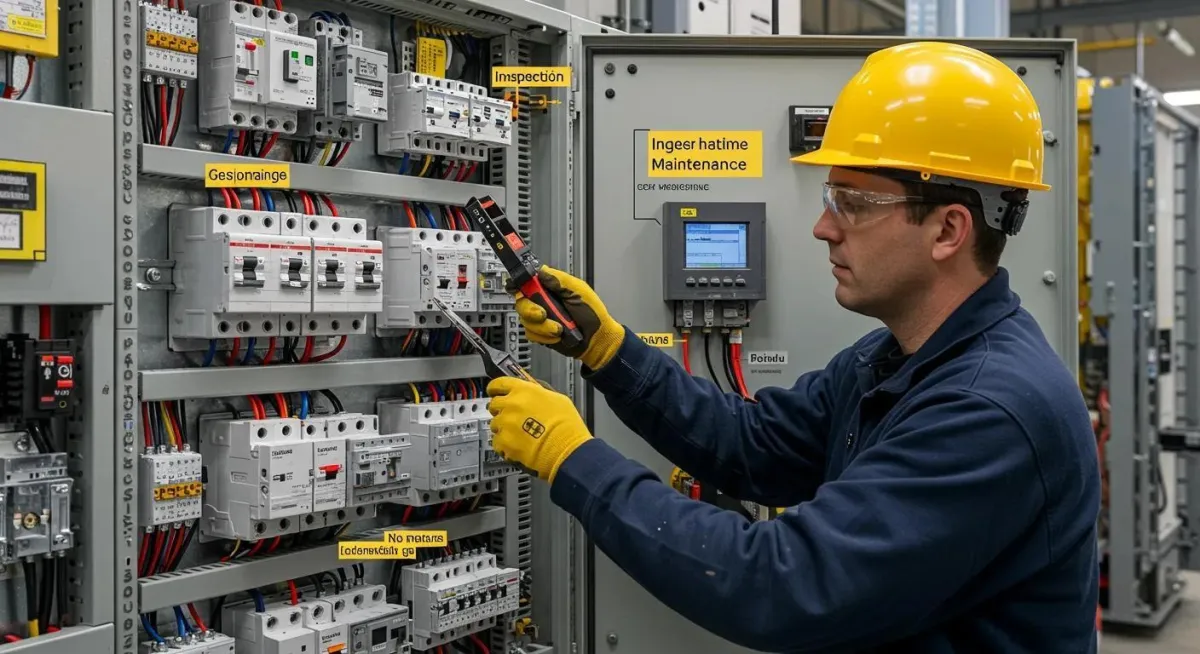
Stay Safe: Your Guide to Routine Electrical Maintenance
Routine Electrical Maintenance Guidelines: Essential Checklist and Safety Tips for Homeowners and Professionals
When it comes to maintaining a safe, functional home, routine electrical maintenance should never be overlooked. Whether you're a homeowner managing everyday wear on your systems or a professional overseeing larger properties, understanding the value of preventative electrical maintenance is key to avoiding hazards, improving energy efficiency, and extending the lifespan of your electrical components.
At B-Line Electrical Services, we’re proud to offer professional electrical maintenance services across Woodstock, ON. With our team of licensed electricians and decades of combined experience, we’ve helped countless clients stay ahead of electrical problems with routine inspections, repairs, and safety upgrades. In this guide, we’ll walk you through the fundamentals of electrical upkeep, complete with expert tips and a practical maintenance checklist to protect your home or building.
1. What Is Routine Electrical Maintenance and Why Is It Important?
Routine electrical maintenance involves regularly scheduled inspections, testing, and minor repairs to ensure your electrical systems remain safe, efficient, and code-compliant. Just like HVAC or plumbing systems, your electrical system requires ongoing attention to function properly.
How Does Regular Electrical Maintenance Prevent Hazards and Failures?
Neglecting your home’s wiring, outlets, and circuit breakers can lead to serious consequences, including electrical fires, shock hazards, and power outages. By following a home electrical inspection routine, you catch minor issues—like overheating outlets or deteriorating wiring—before they turn into costly emergencies.
Regular maintenance can help prevent:
Electrical fires caused by overloaded circuits or worn wiring
Appliance damage from power surges or faulty outlets
Short circuits due to improper grounding or outdated components
What Are the Key Benefits of Routine Electrical Maintenance?
Some of the most important benefits of regular electrical upkeep include:
Improved home safety through electrical fire prevention
Energy savings through electrical load balancing and efficient wiring
Peace of mind knowing your home electrical system care meets current safety codes
Reduced risk of surprise outages and repair costs
Whether you're managing a family home or a multi-unit property, staying consistent with your electrical maintenance checklist is one of the smartest investments you can make.
How Often Should Electrical Systems Be Inspected?
For most homes, a whole-house electrical check should be conducted at least once every 1–2 years. However, monthly and seasonal electrical checks—especially before winter or summer—can help address changing energy demands and identify potential wear.
For older homes or those with high-power needs (like EV chargers or hot tubs), annual electrical maintenance is highly recommended. If you’re unsure, our licensed electricians in Woodstock can help assess the right maintenance schedule based on your home’s age, usage, and layout.
2. What Are the Essential Tasks in an Electrical Maintenance Checklist?
Following a clear and consistent electrical maintenance checklist helps ensure nothing is overlooked. Here are some of the core tasks we recommend homeowners and pros include in their upkeep routine:
How to Inspect Your Electrical Panel Safely and Effectively
Check for rust, heat marks, or corrosion on breakers
Perform electrical panel check for proper labeling and load distribution
Confirm breakers are functioning correctly with circuit breaker testing
Schedule regular electrical system inspection for aging panels
If your panel is outdated or frequently tripping, it might be time for an upgrade. View examples of our panel replacement projects on our Our Works page.
What Should You Check in Wiring and Outlets During Maintenance?
Look for frayed wires, discoloration, or scorch marks
Perform outlet and switch inspection for loose connections
Check for buzzing or sparking sounds when devices are plugged in
Test all outlets using a plug tester to ensure proper grounding
Addressing wiring maintenance needs early reduces fire risk and improves efficiency.
How to Test Electrical Safety Devices Like GFCI and AFCI Outlets
Use the “Test” and “Reset” buttons on GFCI outlets monthly
Ensure AFCI (Arc-Fault Circuit Interrupters) trip correctly using testing tools
Replace any outlets that don’t respond properly
Routine GFCI outlet testing is a vital part of your home electrical safety guidelines, especially in kitchens, bathrooms, and garages.
When and How to Replace Faulty Electrical Components
Replace cracked outlets, outdated fixtures, or damaged faceplates
Upgrade two-prong outlets to grounded three-prong types
Switch out old incandescent lighting with LED for energy efficiency in electrical systems
If you're unsure whether a component is safe to continue using, it’s best to contact our team for a quick, professional inspection.
3. How Can Homeowners Perform DIY Electrical Maintenance Safely?
Homeowners can take an active role in residential electrical upkeep by performing simple yet effective DIY electrical safety tips. Start by checking for loose outlets, frayed wires, and buzzing sounds near electrical panels. Make sure all light switches and wall sockets are secure and functioning properly. These small tasks help spot issues early and promote safe electrical practices at home.
How to Use a Multimeter to Test Outlets and Circuits
Using a multimeter is one of the most practical tools for electrical maintenance. It allows homeowners to test voltage levels, continuity, and resistance in outlets and circuits. Always ensure power is off before handling wires or connections. Learning to safely use a multimeter is a great first step in understanding your home electrical system care.
What Are Common Electrical Problems and How to Identify Them?
Frequent circuit breaker trips, dimming lights, or burning odors may point to issues that need attention. These signs could indicate wiring problems, overloaded circuits, or faulty components. For anything beyond surface-level inspection, it’s best to schedule a professional electrical system inspection.
4. What Are the Best Practices for Routine Electrical Safety Checks?
A strong electrical troubleshooting checklist should cover everything from outlet and switch inspection to testing safety devices. Begin with an electrical panel check, inspect all circuits, and ensure wires are intact and connections secure. Monthly and seasonal electrical checks are especially helpful in older homes or properties with frequent usage spikes.
What Are the Signs of Electrical Problems to Watch For?
Look out for flickering lights, excessive heat from outlets, or frequent tripping of GFCI/AFCI breakers. These are key warning signs in any home electrical inspection. If you notice these, it may be time for a whole-house electrical check or even an upgrade—services that B-Line Electrical expertly handles, as shown in their recent projects.
How to Prevent Electrical Fires Through Regular Maintenance
Preventative electrical maintenance is your best line of defense against electrical fires. Replace outdated wiring, avoid overloading circuits, and perform scheduled electrical servicing. Smoke detector and wiring checks should be part of your annual electrical maintenance routine.
5. Which Electrical Safety Devices Should Be Included in Maintenance?
GFCI (Ground Fault Circuit Interrupter) outlets are essential for protecting against shock hazards in areas with moisture—like kitchens, bathrooms, and garages. Regular GFCI outlet testing ensures these devices are working properly and providing the protection your home needs.
How Do AFCI Breakers Protect Your Home From Electrical Fires?
AFCI (Arc Fault Circuit Interrupter) breakers detect arc faults that can lead to electrical fires. They are especially important in bedrooms and living areas. Include these checks as part of your electrical safety checklist and test them at least once a year.
Why Are Surge Protectors Important for Electrical System Longevity?
Surge protectors shield your home from sudden voltage spikes, helping to extend the life of your appliances and safeguard sensitive electronics. A power surge protection check is a simple but effective part of your house electrical maintenance routine.
Stay tuned for Part 3, where we’ll cover emergency readiness, pricing expectations, and the importance of scheduling regular inspections.
If you’re unsure where to start or prefer expert guidance, B-Line Electrical Services offers professional electrical maintenance services throughout Woodstock and surrounding Ontario communities. Visit our services page or contact us to speak with a licensed electrician today.
6. How Does Professional Electrical Maintenance Complement DIY Efforts?
While DIY inspections can catch surface-level issues, there are times when only a licensed electrician should step in. If you notice frequent breaker trips, power surges, or suspect outdated wiring, it’s time to contact a professional. Certified electricians like those at B-Line Electrical Services are trained to detect hidden risks and ensure everything is compliant and up to code.
What Services Do Electricians Provide During Routine Maintenance?
Routine electrical maintenance by a professional typically includes a full system inspection, load testing, thermal imaging, panel diagnostics, GFCI/AFCI testing, and grounding checks. Electricians can also upgrade panels, replace faulty wiring, and offer preventative recommendations based on your home or business setup. You can view real-world examples of this on B-Line’s project showcase.
How Does Professional Maintenance Extend Electrical System Life?
Professional maintenance ensures every component in your electrical system runs efficiently and safely, which reduces strain, minimizes downtime, and prevents long-term damage. Regular servicing not only increases system longevity but also helps you avoid the cost of major repairs or full replacements down the line.
7. What Are the Key Regulations and Safety Standards for Electrical Maintenance?
The NEC provides the foundation for safe electrical design, installation, and inspection in North America. It’s updated regularly to reflect evolving safety practices. Professional electricians follow these standards to ensure all maintenance work is done legally and correctly—reducing your liability and risk.
What Local Codes and Safety Guidelines Should You Follow?
In Woodstock, Ontario, electrical work must comply with the Ontario Electrical Safety Code (OESC). This code governs everything from residential wiring to commercial panel upgrades. A local electrician understands these specific guidelines and integrates them into routine maintenance services.
How Do Safety Organizations Influence Electrical Maintenance Standards?
Organizations like the Electrical Safety Authority (ESA) and CSA Group provide certifications, inspections, and oversight to ensure both DIY and professional maintenance align with current safety benchmarks. B-Line Electrical Services stays up to date with these standards to provide homeowners with safe, code-compliant service.
Frequently Asked Questions
1. How often should I schedule electrical maintenance?
At least once a year for most homes, and semi-annually for older homes or commercial buildings.
2. Is DIY electrical maintenance legal in Ontario?
Basic tasks like testing outlets or replacing covers are fine, but anything involving wiring or panels must be done by a licensed electrician.
3. What should I include in an electrical maintenance checklist?
Check GFCI outlets, inspect cords and plugs, test smoke alarms, and ensure no breakers are hot or frequently tripping.
4. How do I know if my panel needs upgrading?
If your panel is over 20 years old, doesn’t support new appliances, or shows signs of wear, it's time for a professional assessment.
5. Are electrical safety devices required in all rooms?
Yes, Ontario code requires GFCI in wet areas and AFCI in living and sleeping spaces.
Conclusion
Maintaining your electrical system is not just about safety—it’s about long-term efficiency, peace of mind, and protecting your home investment. While DIY efforts have their place, professional maintenance ensures nothing is overlooked. At B-Line Electrical Services, we provide licensed, experienced care for homeowners across Woodstock and Ontario. To book a routine maintenance inspection or learn more about our services, contact us at +1 519-532-1181 or email [email protected] today.


